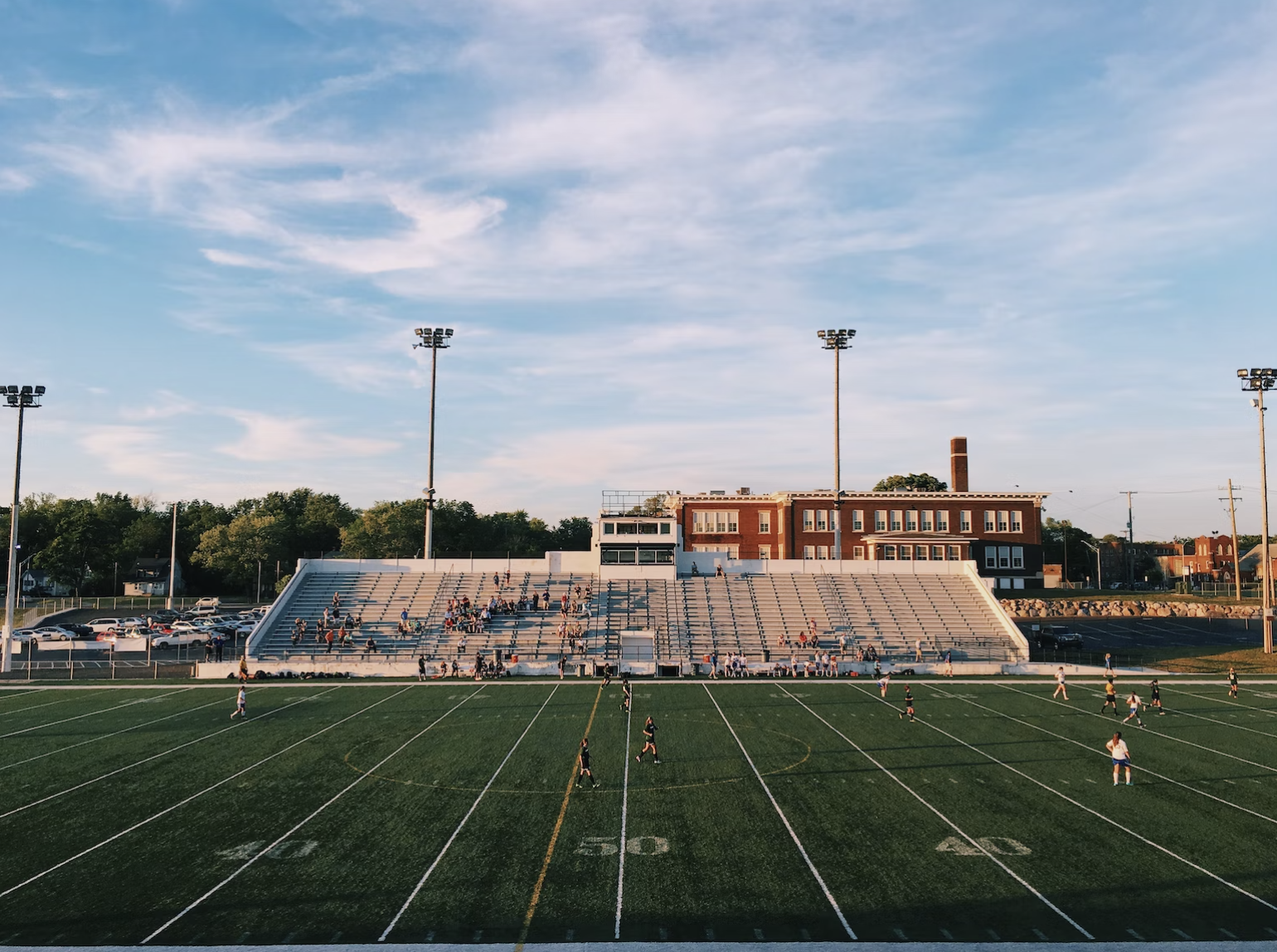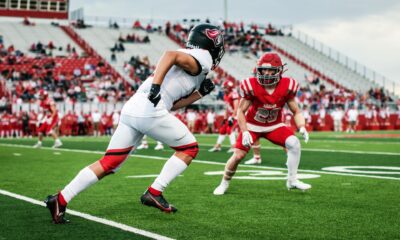All Sports
A Look Into the High-Intensity Business Side of Professional Sports

A Look Into the High-Intensity Business Side of Professional Sports
With athletes and coaches making millions of dollars for winning the world’s top titles, it’s no secret that professional sports now involve lots of investors and lots of deals. It’s a big, high-intensity business fueled by superstar athletes and public opinion.
What used to be an amateur pastime is now a high-stakes industry with dramatic ups and downs. So, what’s it like behind the scenes? What is the work-life balance of employees in the industry? Here’s how business is constantly reshaping the world of professional sports.
The Commercialization of Professional Sports
Sports franchises and players are more than just their role in making games happen—they all have their own brands now.
Thanks to the commercialization of professional sports, image is everything. Fan-favorite players get sponsorships and endorsements while being expected to build a personal brand that sells products. These deals boost already high earnings for top players, and many go on to start their own businesses with their earnings after they retire from their life as an athlete.
Sports franchises can gain notoriety, usually for their winning record (such as the New England Patriots, the New York Yankees, or Manchester United), legendary players, or for their unique history (like the Boston Red Sox). All of these factors and more build franchises into global brands, and the most successful can bring in huge amounts of money.
Financial Strategies of Sports Franchises
So, how do sports franchises make their money? First, by selling tickets. Small venues have a lower attendance cap than large ones, which can affect both the price of the tickets and the scarcity. Season tickets and premium seating options can also be a good source of revenue.
While ticket sales are important, they’re not the only source of revenue. Franchises can also earn money selling merchandise and concessions. They often make partnerships with sponsors that bring in more money and increase visibility.
Franchises can bring in even more revenue in surprising ways. Companies will pay to have their name on a stadium for a set number of years. Franchises can rent out their stadiums when they’re not using them, offer corporate event services, and license their logo for third-party merchandise.
Of course, there are major expenses involved in running any sports franchise as well, such as player salaries. Weighing the cost-benefit of bringing in an expensive star player can be a challenge, for instance. Sometimes, it’s a bit of a gamble for franchise owners in calculating the potential return on investment of any given player.
The Power of Sports Marketing
The business success of professional sports in global culture is largely due to smart marketing practices and public relations. Building a strong fan base requires more than simply having a winning record—it involves building engagement and loyalty.
Today, social media platforms and other digital mediums have made it possible for marketers to keep the attention of fans and engage with them regularly. Social media also attracts team “superfans,” which can end up providing free promotional content and sharing.
Innovative marketing campaigns using new technology have fueled the growth of sports revenue. The best-performing teams have experimented with virtual reality (VR), personalization, and other novel approaches to increase engagement and sales. Through marketing, franchises can sell more tickets, build their brands (and the brands of individual players), and sell merchandise.
The Role of Analytics in Sports
Data analytics have been extremely helpful in professional sports for a range of applications, from tracking and analyzing performance to creating marketing campaigns. Data is even being used to enhance training and prevent injuries.
There are several sources of data that can be used to develop insights. Players can wear sensors to passively collect data, which can be used for performance statistics, training, and injury prevention. Data gathered from online sources can tell marketers more about the fans and how best to promote engagement. As time goes on, more and more options for data collection are becoming available.
Challenges in Sports Business: Business Agility is Key
Running a successful franchise within the world of professional sports isn’t easy. Players and fans expect certain traditions to be respected, while still demanding modern convenience and entertainment. A good example of this balance can be seen in major league baseball, which implemented a pitch clock to make games move more quickly.
Another challenge in sports business is how quickly things can change. Business agility is key, as is being able to respond appropriately to PR crises and ethical dilemmas. In the wake of the pandemic, franchises have also had to grapple with issues like reduced attendance and a potential recession.
The Relationship Between Sports and Business
Although most people don’t pay much attention to the business side of sports, it’s a huge driving force within the industry. Without business leaders and investors, sports franchises wouldn’t be the national and global sensations they are today, because they wouldn’t have the resources and visibility they enjoy. Sports would likely remain at a hobby level, without the big salaries and branding that are associated with professional athletes today.
Sports are a national pastime, bringing people closer together while entertaining them. While the business side of things isn’t as glamorous as the glory of star athletes performing incredible physical feats, it is necessary to keep everything running and to shape the future of our favorite games.
Read more on sports below:
- What is the fastest tennis serve of all time?
- The fastest rugby player ever
- Who are the best penalty takers of all time?
-

 News1 month ago
News1 month agoThe Best Male Tennis Players of All Time
-

 Uncategorised1 month ago
Uncategorised1 month agoWhat Dinosaur Has 500 Teeth?
-

 News1 month ago
News1 month agoThe Fastest Rugby Players Ever
-

 Football1 month ago
Football1 month agoThe Best Penalty Takers of All Time
-

 Football1 month ago
Football1 month ago10 of the most underrated footballers in the world right now
-

 Football1 month ago
Football1 month agoPlayers with the most goals in a Premier League season
-

 Football1 month ago
Football1 month agoWho is the Fastest Football Player in the World?
-

 Football1 month ago
Football1 month agoChelsea’s Possible Lineup For Next Season





















